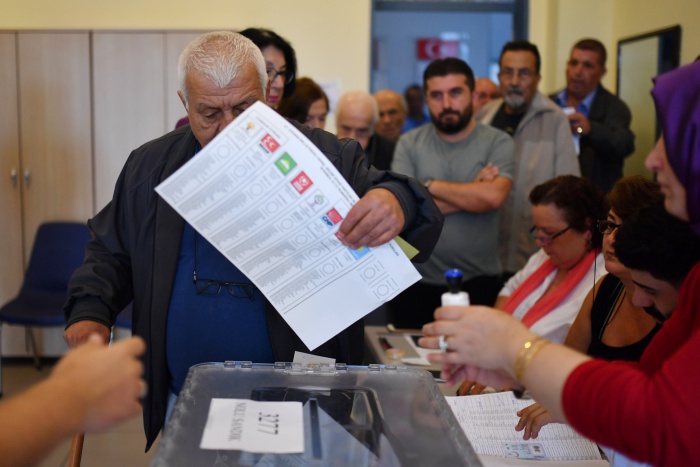Turkey’s Supreme Board of Elections (YSK) has rejected a request from the country’s Interior Ministry to use a system parallel to the election authority’s system to tally votes in the May 14 parliamentary and presidential elections amid concerns about election fraud and possible efforts by the ruling party to delegitimize the results in the event of an opposition victory.
The presidential and parliamentary elections are set for Sunday, and polls suggest that the united opposition led by the Republican People’s Party (CHP) chair Kemal Kılıçdaroğlu could win control of parliament from Turkish President Recep Tayyip Erdoğan’s Justice and Development Party (AKP) and its allies. Erdoğan himself appears to be trailing in the presidential race.
Last week, political risk consultancy Teneo warned that Interior Minister Süleyman Soylu had established a tally infrastructure to monitor votes, which could lead to different results from those provided by the YSK in an effort to delegitimize the opposition’s potential win.
The YSK ruled that the Interior Ministry’s election tracking system, the Security and Emergency Coordination Center (GAMER), has no role in the election process and cannot receive or collect information related to the election.
Muharrem Erkek, the deputy chairman for legal and election affairs of the opposition CHP, shared the YSK decision on Twitter and warned that those who give illegal orders and those who execute them would be held accountable.
Kanunsuz emir verenler ve uygulayanlar hesap verecek…#SanaSöz#GeliyorGelmekteOlan #Haydi pic.twitter.com/rQ1L1ftM6j
— Muharrem Erkek 🇹🇷 (@MuharremErkek17) May 10, 2023
Election security has been a significant concern in Turkey, with various issues arising during past elections. One of the main concerns involves the potential political interference in the operations of the YSK and the state-run Anadolu news agency, which could affect the fairness and transparency of elections as well as the announcement of results.
There also have been allegations of harassment, intimidation and even violence against opposition candidates and supporters and concerns about the accuracy and transparency of voter registration and ballot-counting processes. Some reports have highlighted irregularities in voter registration lists, such as the inclusion of deceased individuals or ineligible voters. Some critics have also raised concerns about the lack of transparency and accountability in the use of electronic voting systems and the potential for tampering or manipulation of electronic votes.

